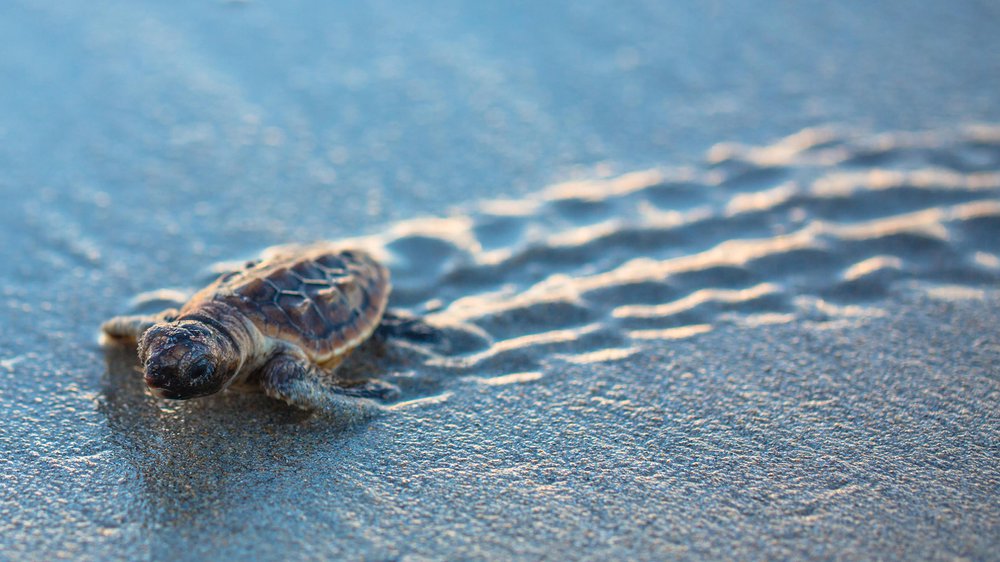Question Your World: How Does Climate Affect the Sex of a Turtle Hatchling?
It turns out that we humans are not the only species that reacts in strange ways to hot temperatures. That’s right folks, your favorite neighborhood sea turtle may have had its sex determined by the temperature of its nest. So, how does climate affect the hatchling?
A recently published article is sharing some concerning information regarding our planet’s rising temperatures and how they are impacting the sex of hatchling sea turtles. For this story, we go to where oh-so-many other news stories happen: Florida.
Turtle eggs nested in sand with a temperature of 88°F or higher are more likely to produce a female turtle than a male one. Temperature-dependent sex determination is not unusual as it’s been observed in several reptiles and fish. Essentially, the temperature experienced while some creatures are in their embryonic or larval development will determine its sex.

Image credit: Getty Images
This year, in a sample of hatchlings from Florida’s coasts, there are reports of a very unbalanced ratio of female to male turtle hatchlings. In other words, who runs the turtle world? Girl turtles!
The warming coastline in this part of the US has potentially led to far more females than male sea turtles. Alarmingly, a turtle hospital in Florida also stated this has been what they have been seeing for the last four years already.
Closer to home, beaches along North Carolina and even some parts of Virginia are home to nesting sea turtles. The safety of those nests and the temperature of the sand along those shores will be vital for producing future generations of male sea turtles.
Males are already a minority in sea turtle populations with only 1 male for every 10 female turtles naturally. This additional climate stress will only make things more difficult for over 400 species with temperature-dependent sex determination. For example, only 1 in a 1,000 leatherback turtles make it to adulthood in the wild as is.
Now with the added stress of potential mass-feminization of future generations, researchers are again suggesting humans find ways to become resilient to these changes. Scientists are encouraging a few ways to mitigate stresses on these vulnerable populations, like stopping coastal development. They also recommend practicing climate resiliency measures aimed at slowing the rate of temperature rise globally, like reducing emissions of heat-trapping gasses.
This study in Florida is just one of the many indicating numerous currently observable impacts of global climate change. For the time being, this research on hot turts is opening many eyes to the role we humans will play in the future of so many other species.
More work and research is needed to truly understand and take the right actions but it's an important reminder that we’re all on this planet together, folks.


